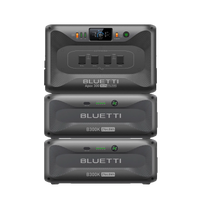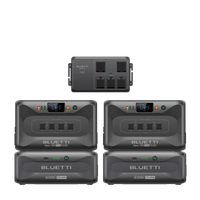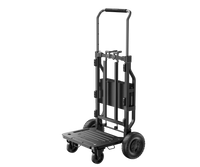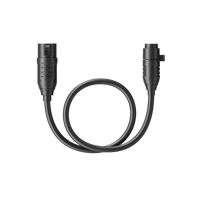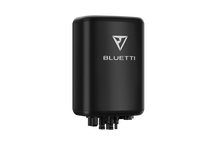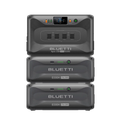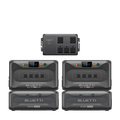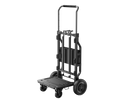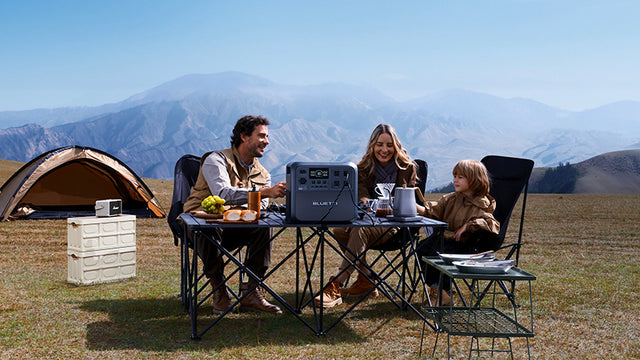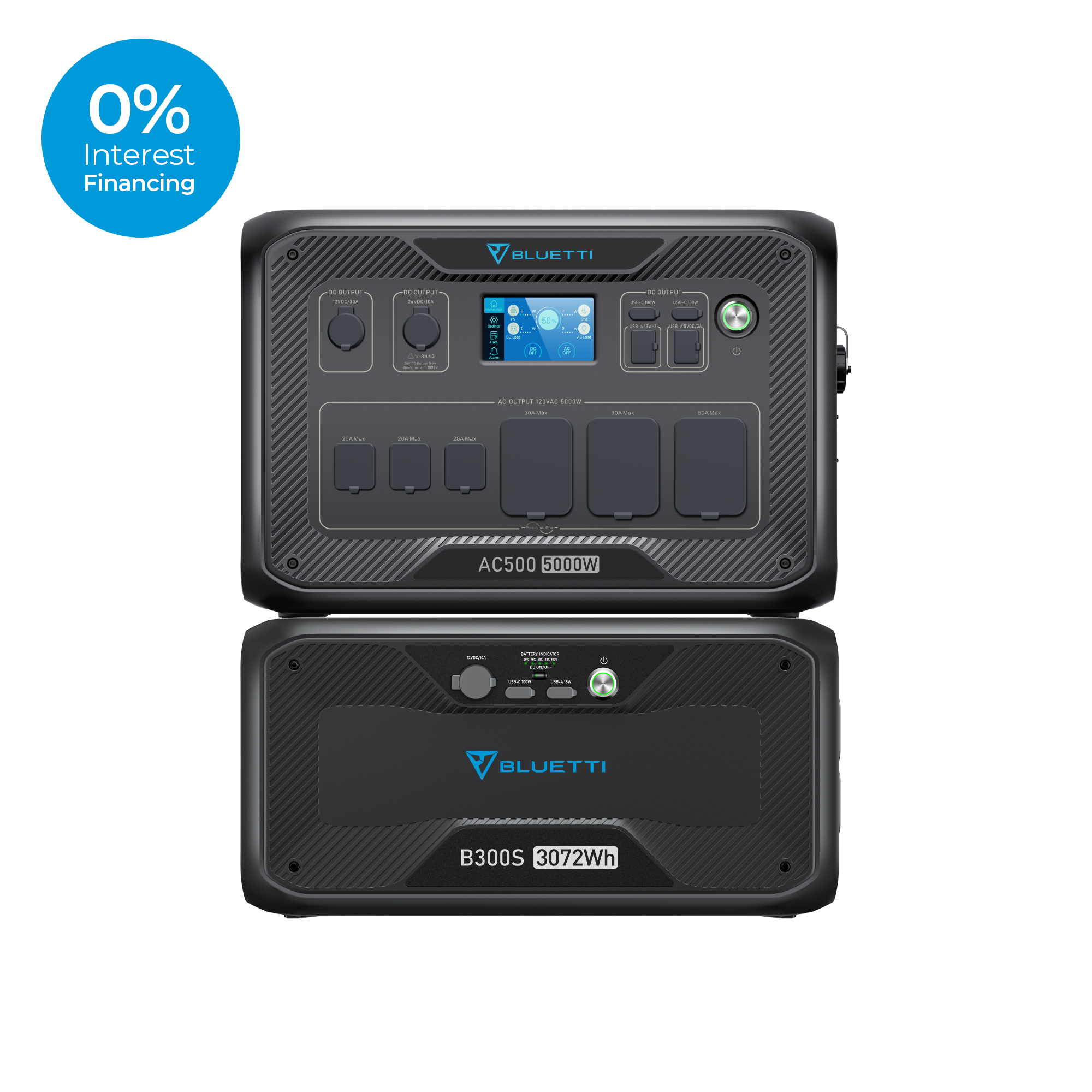Your cart is empty
Shop our productsRunning a profitable food truck requires a constant power supply to keep food warm and fresh. For this, you can use different types of generators ranging from inverter generators to built-in generators.
They keep your appliances and equipment running all through the day. We recommend using generators that do not emit harmful gases. So which generators can you choose from? What size of generator do you need? This article answers these questions and provides practical tips for using a food truck generator.
Types of Food Truck Generators
Since a food truck is used to prepare food, it is recommended to opt for generators that do not emit toxic gases. Here are three options to choose from:
-
Inverter Generator
An inverter generator is a portable generator that produces more stable electricity than conventional generators. It utilizes three steps: conversion, inversion, and generation.
First, it converts AC into DC power. Since DC is unstable, it passes through an inverter module, converting it back into stable AC power. Finally, the AC power is used to power your food truck.
Inverter generators are ideal for a food truck since they produce clean power, which does not interfere with the truck’s components. And since they are fuel-efficient, you are sure to spend less on fuel. In addition, they are quieter, more portable, and allow for parallel operation.
-
Portable Generator
Portable generators run on gasoline using the built-in alternator to generate electric power. They are in fact the most popular with many food truck owners.
They are cost-effective since they produce more power at a lower cost than other generators. Thanks to their portable design, you can transport them easily.
You can get them in different power ratings ranging from a few watts to kilowatts. While a workhorse, portable generators are noisy compared to inverter options. They are also bulky, requiring more space than other generators.
-
Built-in Generator
Finally, you can opt for the built-in model. As the name suggests, it is installed within the structure of the food truck. It provides power to all electrical appliances and equipment inside the truck, mitigating the need for an external source of power. They are intended for large trucks that have ample space to fit.
They produce the most power. However, they are not ideal for small trucks or crowded kitchens. Trucks with built-in generators tend to be more pricey than conventional options.
What Size Generator Do I Need For A Food Truck?

Food truck generators come in three general categories: small, medium, and large. A small generator has a 4,000 watts output while a medium option produces up to 6,000 watts. A large generator can produce up to 8,000 watts.
To run a profitable food truck, you need a generator that can meet all your power needs. As such, you need to consider factors such as power requirements. Ideally, you should list the power ratings of all appliances to have a rough idea of the generator capacity you need.
Consider appliances that you’ll be using simultaneously. Will you be running the fridge, grill, and fryer simultaneously? If so, then you’ll need a more powerful generator. Consider the starting surge of different appliances. Refrigerators often require more power when starting than when running.
Another aspect to consider is noise and emissions. We recommend going for an environmentally friendly option that is also quiet. Finally, ensure that the generator can be installed safely in your food truck. You don’t want to purchase a generator that cannot fit in your truck.
Other factors to consider when choosing the ideal generator size are fuel type, future needs, and total wattage.
What Do I Need to Consider When Buying a Food Truck Generator?
-
Cost
Before buying a food truck generator, you need to consider your budget. You should buy a unit that is within your budget and cheap to run and maintain. You don’t want to buy one that will outweigh your profits. You should also consider spare parts availability so you can repair it with ease.
-
Power Output
Will you be running a large or small kitchen? If you’ll be running a small kitchen, a small generator with an output of 4,000 watts makes the cut. If yours is a large kitchen, consider buying a generator with an output of over 8,000 watts.
To find the minimum power requirements, make sure to calculate the total wattage of all appliances and electronics you’ll be using. This way, you’re guaranteed to purchase an ideal generator.
-
Run Time
Consider how long your food truck will remain open before buying a generator. If you’ll be open for a few hours during weekends, you may not need a powerful generator. On the other hand, if you’ll be open for many hours per day, consider a large generator.
-
Fuel capacity
Fuel capacity depends on the truck’s design. If you are using one with a built-in generator, you’ll be limited to the truck’s capacity. Conversely, an external gas-powered generator allows you to purchase just about any capacity you deem fit.
-
Size
Besides fuel capacity, power output, and run time, you also need to consider the size of the generator. If you have a limited space, small generators are ideal. For large trucks, you can fit large and bulky options.
Recommended Food Truck Generators
-
BLUETTI AC200MAX Expandable Power Station

This is a small food truck generator with a minimum capacity of 2,048Wh. It is however expandable to 6,144Wh for extra power needs. You can recharge it using seven ways: AC, solar, your car, and lead battery, among other options. And since it is made of rugged material you can rest assured it can handle the harsh conditions in most kitchens.
This model can power your electric grill for one and a half hours. It can power a refrigerator for 10 hours and an air conditioner for four hours. The best part is that it is portable allowing you to transport it with ease. In addition, it is quiet and does not produce harmful emissions.

If you are looking for a heavy-duty generator, consider buying this option. It produces up to 5,100Wh on a single charge. This is ample power to run a small to medium food truck. Thanks to the rubberized wheels, you can move it from one location to another with ease. The LED display allows you to adjust settings according to power demands.
Like other BLUETTI generators, it comes with an app remote control. As such, you can monitor its performance as you serve your customers. It also allows you to plug in multiple devices for better kitchen efficiency.

This is yet another portable option for your food truck, which has 2,000Wh capacity. A compact and lightweight generator, it is ideal for food trucks with tight spaces.
With it, you get up to 17 outputs for different devices. And since it allows parallel operation, you can connect it to other generators for more power production.
This model is eco-friendly, meaning the food truck will be free from toxic gases. And since it features quiet operation, you are sure to carry out other activities with minimal disturbance.
Benefits of Using Solar Generator for Food Truck
-
Clean and Renewable Energy Sources
Since the conversion of sunlight into solar energy does not require the burning of fossil fuel, a solar generator does not emit harmful gases. What’s more, sunlight is renewable, meaning you’ll be running a sustainable food truck. This reduces the reliance on fossil fuels reducing your carbon footprint to a minimum.
-
Cost-effective
While the initial cost of installing a solar system is expensive, it is cheap to run and maintain in the long run. Besides, gasoline prices are dynamic, meaning the cost of running the food truck might increase with time. Solar energy is free from the day of installation, meaning you’ll not be paying for maintenance and other services.
-
Improve Reputation
There’s no doubt that running a food truck running on solar energy will enhance the brand image of your company. Most Americans prefer buying from brands that are championing sustainable living. So, if this is you, consider buying a solar generator.
-
Energy Independence
By using a solar generator, you become energy-independent from external power sources. This is especially true for food trucks operating in remote areas or off-grid locations. Furthermore, you can use the generated power to run other appliances.
-
Reduced Pollution
Solar generators do not produce emissions, meaning they do not pollute the environment. Furthermore, they are silent which can create a more pleasant experience for your customers.
Final Thoughts
As you can see, choosing a food truck generator is as easy as considering power demands, the number of appliances, and the design of your truck. Remember a food truck requires an eco-friendly generator to mitigate pollution.
If you want to buy the most ideal for your food truck, consider buying from BLUETTI. The generators are easy to use, portable, and powerful compared to other brands.
Shop products from this article
Be the First to Know
You May Also Like

What Does a 30% Federal Solar Tax Credit Mean and How to Apply?
Governments around the world are offering programs that encourage homeowners to switch to solar energy. Among the most notable programs is the 30% Federal Solar Tax Credit. It reduces your...

Deadly Flooding Devastates U.S. South and Midwest — What You Need to Know















